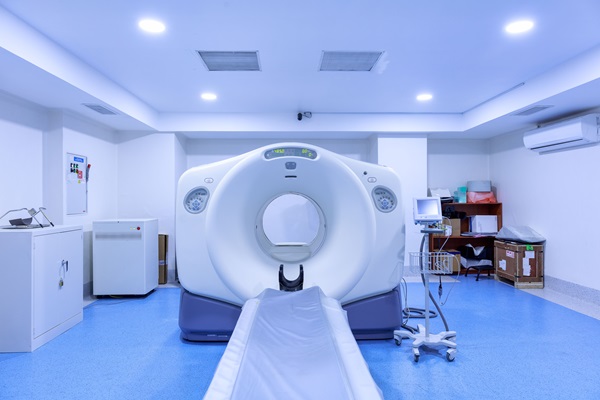Visit Your Primary Care Doctor for Immunizations

Immunizations are an important part of primary care. Not only can they help prevent illness, but they can also reduce the chance of complications should you get sick. Whether you want to get ahead of flu season or whatever else may come your way, your primary care doctor can provide the vaccinations you need.
Keeping up with your immunizations
When many people think of immunizations, they think of the ones given to infants, toddlers, and school-aged children. However, people of all ages can reap the benefits of staying up to date with their vaccines. This is especially true as viruses mutate, immunity gained from previous vaccines wanes, and patients become part of an at-risk demographic.
For instance, patients who work in a medical setting are at an increased risk for hepatitis B (hep B). Although vaccines have a high efficacy rate, they do not always take (i.e., immunity is not always achieved). A booster shot can help these individuals gain immunity against hep B. Similarly, patients may age into an at-risk demographic, such as a respiratory syncytial virus (RSV).
Patients unsure whether they are current with their vaccines should ask their primary care doctor during an annual physical examination. If patients do not get these recommended checkups, they may make an appointment for immunizations alone.
Routine vaccinations for adults
Patients must receive certain vaccinations yearly or every few years since some immunizations will wane over time. Another reason is that viruses are known to mutate. Essentially, the mutation is how the virus survives and can continue to get past a patient’s built immunity to reinfect them. To protect against these mutations and waned immunity, the Centers for Disease Control and Prevention (CDC) recommends that all adults get the following routine vaccinations:
COVID-19 vaccinations
While most people have returned to normal life, vaccination against COVID-19 remains important to fight off the latest variants. This applies regardless of whether or not the patient has contracted COVID yet. Since the guidelines for these vaccinations are ever-changing, ask the primary care team about current recommendations.
Flu shots
Most people have had influenza, or the flu, before. Most times, this viral infection clears up on its own, but it can still be painful to go through. There is also a chance for severe, life-threatening complications such as sepsis. To be on the safe side, the CDC recommends that adults get a flu shot in preparation for flu season every autumn and winter.
Tdap shots
The tetanus, diphtheria, and pertussis (Tdap) vaccine provides protection for up to 10 years. This is crucial, as each of these diseases can be life-threatening. For example, tetanus has no cure, which affects the nerves. Diphtheria may also result in nerve damage. Its other complications include kidney failure and heart muscle damage (myocarditis). Complications of pertussis (whooping cough) can be just as fatal, ranging from pneumonia to fainting spells.
Due to the wide use of these vaccines, the severity of these previously common illnesses has greatly waned. Still, since boosters are so far apart, it can be easy to forget about them without the help of a primary care team.
Other important immunizations
There are other immunizations that adults may need to keep up with, which vary by age. Take a look at the CDC’s recommendations by age group:
Ages 19 to 49
Patients between these ages should ensure they are up to date with their childhood immunizations, such as measles, mumps, rubella (MMR), and human papillomavirus (HPV). This is possible by using blood samples to check for acquired immunity.
Vaccination against meningococcal disease (MenB vaccine) is also recommended for those at high risk, such as college freshmen and pregnant people. MenB spreads through saliva, such as from kissing or simply living in the same household or dormitory.
Ages 50 to 64
Patients in this age group should get vaccinated against shingles (herpes zoster). A single-dose RSV vaccine is typically recommended. Finally, Hep B is another common booster shot needed between these ages.
Age 65 and over
This age bracket may also benefit from an RSV shot. The pneumococcal vaccine may be recommended to protect against meningitis, pneumonia, and sepsis. A primary care doctor will look at the patient’s medical and personal history to determine whether these shots are needed.
Protect your health and your community
Getting vaccinated is an easy, convenient way to keep yourself healthy. Additionally, it is known to slow down the spread of a virus within a community. To protect yourself, your loved ones, and your neighbors, visit Texas Urgent Care & Imaging Center for immunizations.
Request an appointment here: https://tx-urgentcare.com or call Texas Urgent Care & Imaging Center at (832) 941-1894 for an appointment in our New Caney office.
Check out what others are saying about our services on Yelp: Primary Care in New Caney, TX.
Recent Posts
X-rays are popular tools medical professionals use to diagnose a wide range of health conditions quickly and safely. They allow these professionals to see inside the body without invasive procedures, making them invaluable in urgent and primary care settings. Whether identifying fractures, monitoring chronic conditions, or detecting abnormalities, X-rays are critical in ensuring timely and…
A CT scan, or computed tomography scan, is a diagnostic tool that provides detailed images of the body’s internal structures. This non-invasive procedure helps medical professionals diagnose and monitor various conditions, from injuries to chronic illnesses. Knowing what to expect during a CT scan can ease concerns and prepare patients for a smooth experience.A CT…
If you work in public transportation, you may need to have a DOT drug screening. The Department of Transportation (DOT) regulates this test and requires it for you. You might be wondering what this test is like. Keep reading to learn more.Congress passed the Omnibus Transportation Employee Testing Act in 1991. Congress knew that the…
Walk-in clinic provide convenient, accessible health care for non-emergency medical needs, making it an ideal choice when immediate attention is necessary. Understanding when to visit a clinic can help patients save time, avoid unnecessary trips to the emergency room, and receive quality care for their health concerns. These clinics handle various issues, offering fast, professional…


